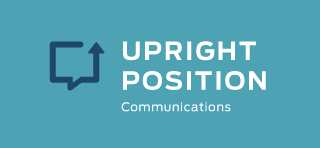
When our clients ask us to share something with reporters “on background,” our red flags start waving. There are rare times when this makes sense, but sharing information with reporters while asking them not to attribute this information to anyone specific in your organization, aka on background, is a pause for concern.
#1 – You put your reputation at risk.
Would your reputation be damaged if your name is associated with the shared information? If you’re providing information and don’t want your name in the spotlight, think twice before sharing at all. Keep in mind that asking reporters to keep your information on background is an agreement between the spokesperson and the reporter. If the reporter doesn’t clearly agree and can’t or won’t promise confidentiality, the information is not on background. PR 101 says nothing is ever really “off-the-record,” and this is true for anything on background too. Ask yourself what would happen if the information did end up connected to you before you speak. If your reputation is at risk, don’t share. And if it’s not, why not be on the record when you make your statement?
#2 – It might make more sense to wait.
Is this information critical to share right now? If you don’t want your name associated with the information you give them, or you want the reporter to paraphrase or be vague when reporting the details, is this response something you should be sharing today? If you’re unsure about the facts or want the reporter to continue covering your story as more information unfolds, consider rephrasing what you share. Can you state safely that your organization is still looking into the details and will provide updated information when it’s available? Can you share that the information is under embargo, confidential, etc., and offer to provide it later? Work with your PR team to develop some creative and honest ways to share what you safely can without jeopardizing your organization or asking the reporter to work with limited details.
#3 – You’re not making friends with reporters.
Reporters are growing more annoyed with requests to be on background. Unless you’re a whistleblower or top-secret official with a breaking scandal, chances are you don’t need to share anything on background. Journalistic integrity is more important than ever, and ethical reporters want to share the source associated with the information they write. They’re accountable to their readers, and their reputation is on the line too. Expecting them to allow you or your organization to deflect accountability puts them in a difficult spot. If you’re the corporate spokesperson, own it. If you’re not, read the next paragraph before you decide to share.
#4 – What you share can’t be unshared.
Most companies have a policy about who can and should talk with reporters. Are you in a role that isn’t trained to take media interviews? If you’re in a position that doesn’t normally speak to the media, don’t be tempted to take an interview and ask that they refer to you as “a source familiar with the situation.” Your job and your company’s reputation could be in jeopardy. Please escort reporters to the pros in your organization or your PR support team. There’s a reason organizations have designated spokespeople. Discussing sensitive or critical information, and really anything that puts your company in the spotlight, needs to be done the right way. Pros have the experience to frame their responses, so the journalist and the organization are satisfied with what’s shared. Please follow your organization’s protocol and get permission, training and talking points if you are asked to speak. If you aren’t supposed to be in the spotlight, please leave media interviews to the professionals.
#5 – If you’re officially commenting, own it or risk alienation.
If your job description includes speaking on behalf of your company, you should be willing to be named as the source. There is rarely, if ever, a time to request what you share be on background when it’s offered for the organization’s benefit in an official capacity. It’s becoming such an issue that The Verge recently updated their ethics policy. No one speaking in an official capacity will be attributed without being named. They state in their blog, “We’re doing this because big tech companies in particular have hired a dizzying array of communications staff who routinely push the boundaries of acceptable sourcing in an effort to deflect accountability, pass the burden of truth to the media, and generally control the narratives around the companies they work for while being annoying as hell to deal with.” Step up and claim what you say.
On background should be the exception, not the rule, when speaking to the press.
We advise our clients to be open, honest and transparent and choose what they share strategically and carefully. We rarely encourage requests to offer information on background. And we never want our clients to annoy reporters. Media relations is a long game. Today’s actions matter tomorrow and far out into the future.
If your organization has questions about media relations, Upright Position Communications is here for counsel. We can help you frame your message and media outreach to put your company in the very best light while building a solid reputation as a valuable resource for reporters and journalists in your industry. Please contact us to explore how we can take your message to the next level.
